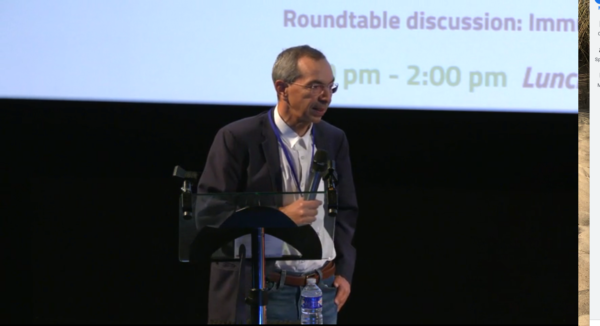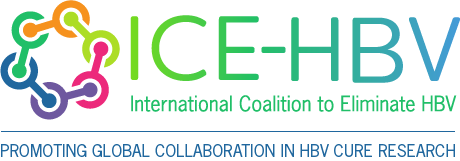ANRS | Emerging infectious diseases
has been involved for nearly ten years in research programs aimed at curing hepatitis B virus (HBV) and Delta virus (HDV) infections. Every year, the ANRS HBV Cure Task Force organizes a workshop bringing together international experts to discuss the recent advances in our understanding of chronic hepatitis B and Delta, and to present the progress in the discovery of new therapeutic targets and advances in clinical development. On the occasion of World Hepatitis Day on July 28th 2022, Fabien Zoulim, professor of medicine in Lyon, coordinator of the European project “IP-cure-B”, the RHU project “CirB-RNA”, the ANRS Task Force “HBV Cure” and current chair of ICE-HBV presents the take home messages from the 9th HBV cure workshop held in Lyon on July 5th, 2022.
Background: Despite the fact that an effective vaccine is available, hepatitis B still represents a major global public health problem today. According to the WHO, there were still 296 million chronic carriers of the virus worldwide in 2019; this disease is also the leading cause of liver cancer. HBV and its complications contributed to 820,000 deaths in 2019. Co-infection with HDV worsens the disease and increases the risk of developing cirrhosis or liver cancer. There are currently no curative treatments for these two types of hepatitis.

Advances in understanding the mechanisms of HBV persistence
Virological aspects. Recent data concerning the viral reservoir (HBV cccDNA) were presented during the workshop. Recent data were presented on how this reservoir is formed and regulated during chronic infection, and how it could be targeted, in particular by using new “genetic scissors” approaches.
Immunological aspects. Recent data were discussed on the mechanisms involved in the defects in the immune responses of patients to discover novel pathways to restore them to effectively control or eliminate the virus. In particular, new approaches such as therapeutic vaccines were discussed.
New technologies to assess the site of infection (hepatic compartment), the viral reservoir and the hepatic immune response
The evaluation of the hepatic compartment at the virological and immune levels is critical to determine the impact of the new therapeutic approaches on the viral reservoir and on the antiviral immune responses in the site of infection. Experts have studied new approaches to analyze the liver compartment, which are less invasive than liver biopsy, such as fine needle aspirations. New PCR and immunology technologies allow now to investigate the viral reservoir and immune responses on FNA samples in proof of concept clinical trials. This should generate crucial information for the development of new therapeutic approaches.
Overview of advanced therapies in the field of hepatitis B and HBV-HDV co-infections
A comprehensive review of the most recent clinical trials was presented and has shown that this field of research is very dynamic: many antiviral molecules and several immunotherapy strategies are in phase II clinical trials, most often in combination therapy, either with direct antivirals or with direct antivirals and immunotherapy. Great advances have been made on certain classes of molecules such as capsid assembly modulators and on strategies targeting viral RNAs (siRNAs or antisense oligonucleotides).
For hepatitis Delta, a virus entry inhibitor (bulevirtide) has been conditionally approved by the European Medicines Agency (EMA) in July 2020- taking into account that so far no treatment was available for this disease. The modalities of administration are being developed pending the results of phase III clinical trials. Other antiviral molecules are also being studied in various clinical trials.
The ANRS | Emerging infectious diseases sponsors and funds a Delta cohort study, ANRS HD EP01 BuleDelta, (monitoring of HDV patients on bulevirtide) which has already included 193 patients in 30 centers. It is also sponsoring the IP-Cure-B study (ANRS HB07 IP-Cure-B ), an European-funded randomized clinical trial which aims to stimulate antiviral immune responses by a TLR8 agonist (Selgantolimod) and which has already included 6 patients in France.
You can rewatch the entire workshop here:
Learn more here:
